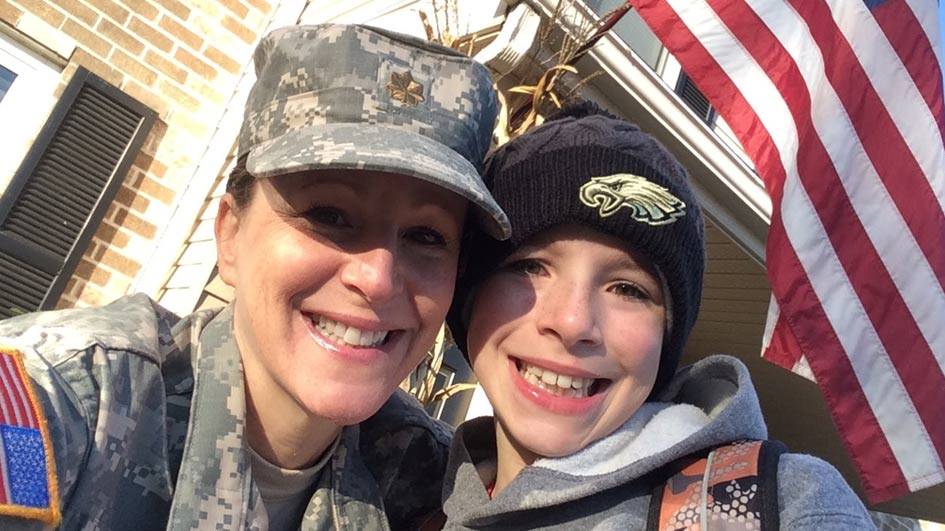When communicating about Veterans Day, it should be all about serving others
By Stacey Hajdak,
Senior Vice President
October 27, 2022

It’s a wonderful thing when people and organizations want to communicate about and recognize those who’ve served our country. If you don’t know someone who’s served, you may feel unsure about how to approach a conversation or how to acknowledge someone’s service. And if you’re a communicator or executive, helping your organization navigate the complexities of acknowledging service and supporting veterans in sharing their stories can be both an opportunity to honor and a challenge to execute.
As Veterans Day approaches, I thought it would be helpful to share some tips for how communicators and leaders can navigate the terrain from my perspective as both an Army veteran and communications professional.
First, a bit of history – it’s important!
1918, on the 11th hour of the 11th day of the 11th month. That’s when Allied nations declared an armistice with Germany, ending what was known at the time as the Great War. President Woodrow Wilson marked the anniversary in 1919 by proclaiming Armistice Day. More than 100 years later, and now known as Veterans Day, we observe this national holiday with parades, wreath-laying and other significant traditions.
Next, let’s clarify the meaning of our U.S. military-related holidays.
- Veterans Day – Honors those who have served honorably, and have left service, both living and deceased. Always Nov. 11.
- Armed Forces Day – Honors those who currently serve. Third Saturday in May.
- Memorial Day – This one is somber, not celebratory. Honors those heroes who made the ultimate sacrifice and died while serving. Last Monday of May.
Now, let’s talk about those communications tips. It’s important to note that because veterans are all different, and we each have our own experiences and backgrounds, there’s no universal right answer.
- When you’re communicating with or about veterans in your organization, or acknowledging military service, make it about their collective service. For veterans, it’s not about us as individuals. What distinguishes military service and makes it so unique (and IMO really special) is that it’s always about service to others, and something bigger than us. It’s about being there for each other. It’s about digging deep when there’s nothing left and finding the energy to help your fellow soldier, sailor, airman, Marine or guardian.
- Invite (but don’t force) veterans to share their stories, including how those experiences contribute to your organization’s mission or purpose. If you’re a corporate communicator or executive and are communicating to or about vets, remember that when you solicit participation in storytelling or recognition opportunities, some will jump at the chance to tell their story, describe their motivation, or detail their experiences with their battle buddies. Be aware of signals from those who may feel less comfortable – it could be for myriad reasons. Position the opportunity as a way to share how the vet contributed to the betterment of their unit or to their mission, or how their experiences add value to your organization. And try not to put vets on the spot. Afford time for them to anticipate and decide if they’d like to participate.
- Engage in a conversation, share their story, hold the event because you value veterans’ service, not for your own reward or the reward of your organization. Sincerity and authenticity rule the day. Companies focus on hiring veterans for their team orientation, sense of duty, discipline, work ethic, cooperation, agility, problem-solving and leadership, especially in difficult situations. These skills are to be valued and transferable to virtually any career, and any type of organization.
- Show the families of veterans some love. Even if you don’t have employees who are veterans in your organization, you may have military spouses, siblings, parents and children who have made plenty of sacrifices while their veteran was serving. Make sure to recognize this service and dedication, too.
- A simple “thank you for your service” is deeply appreciated. We’ll thank you for your support! And maybe even share a war story or two.
Questions? Ask me! I’m always in for a good conversation about military service (and the communications profession).
Here’s to America’s veterans! I feel privileged to be among you and feel responsible to be continually worthy of that status.






